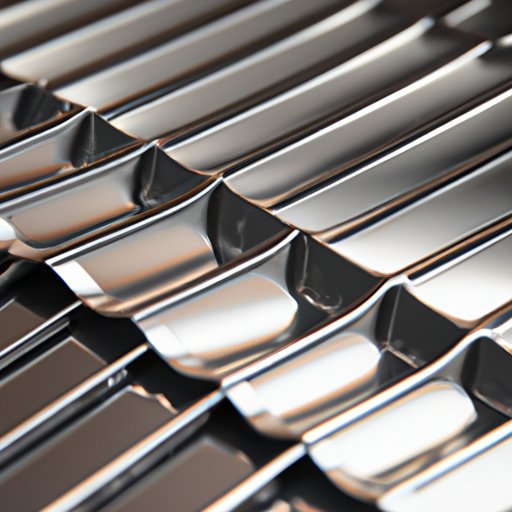Specific Heat Of Aluminum

The specific heat of aluminum is a fundamental property that characterizes its thermal behavior, making it a critical factor in various industrial and engineering applications. Aluminum, with its atomic number 13 and atomic mass of 26.9815386 u, is a widely used metal due to its unique combination of properties such as low density, high strength-to-weight ratio, and excellent thermal conductivity. The specific heat capacity of aluminum, which is the amount of heat per unit mass required to raise its temperature by one degree Celsius, is a key parameter in understanding its thermal response and managing its applications efficiently.
Understanding Specific Heat Capacity

Specific heat capacity, denoted by the symbol c, is defined as the ratio of the amount of heat transferred to an object to the resulting change in its temperature. For aluminum, this value is crucial as it influences the metal’s performance in heat exchangers, cooking utensils, and even in the aerospace industry where lightweight yet thermally efficient materials are sought. The specific heat of aluminum is approximately 900 J/kg·K at 20°C, which means that 900 Joules of energy are required to increase the temperature of one kilogram of aluminum by one Kelvin (or one degree Celsius).
Factors Influencing Specific Heat of Aluminum
The specific heat capacity of aluminum can vary slightly depending on its purity, crystal structure, and the presence of impurities. Pure aluminum has a specific heat capacity close to the aforementioned value, but alloying elements can alter this property. For instance, adding copper or magnesium to aluminum can decrease its specific heat capacity, while maintaining or even improving its mechanical properties. Additionally, the specific heat can vary with temperature, generally increasing with rising temperatures due to the increased vibrational modes of the atoms in the crystal lattice.
| Temperature (°C) | Specific Heat Capacity (J/kg·K) |
|---|---|
| 20 | 900 |
| 100 | 923 |
| 200 | 946 |
| 300 | 969 |

Key Points
- The specific heat capacity of aluminum is approximately 900 J/kg·K at 20°C, which is a fundamental property influencing its thermal applications.
- The purity and crystal structure of aluminum, as well as the presence of alloying elements, can affect its specific heat capacity.
- Temperature also influences the specific heat capacity of aluminum, with values generally increasing as the temperature rises.
- Understanding and accurately applying the specific heat of aluminum is crucial for the efficient design and operation of systems where thermal management is key.
- The specific heat capacity is a critical parameter in various industrial applications, including heat exchangers, cooking utensils, and aerospace components.
Applications and Considerations

The specific heat of aluminum plays a pivotal role in its applications. For instance, in the production of heat exchangers, where aluminum is often used due to its high thermal conductivity and specific heat capacity, the design must account for the metal’s thermal properties to ensure efficient heat transfer. Similarly, in the aerospace industry, where aluminum alloys are used extensively, understanding the specific heat capacity is essential for managing thermal stresses and ensuring the structural integrity of components under varying thermal conditions.
Thermal Management and Efficiency
Efficient thermal management is critical in many applications, from electronic devices to automotive and aerospace systems. The specific heat of aluminum, combined with its high thermal conductivity, makes it an excellent material for heat sinks and other thermal management components. By carefully considering the specific heat capacity of aluminum and how it varies with temperature, engineers can design more efficient systems that minimize thermal gradients and maximize performance.
In conclusion, the specific heat of aluminum is a vital property that underpins its widespread use in various industries. Its unique combination of thermal and mechanical properties makes aluminum an indispensable material in modern engineering. As technology advances and the demand for more efficient, lightweight, and thermally responsive materials grows, understanding and applying the principles related to the specific heat of aluminum will remain crucial for innovation and progress.
What is the significance of specific heat capacity in aluminum applications?
+The specific heat capacity of aluminum is significant because it determines how much energy is required to change the temperature of the material. This property is crucial in designing and operating systems where thermal management is key, such as heat exchangers, electronic devices, and aerospace components.
How does the purity of aluminum affect its specific heat capacity?
+The purity of aluminum can affect its specific heat capacity, with pure aluminum generally having a higher specific heat capacity than aluminum alloys. The presence of impurities or alloying elements can alter the crystal structure and thermal properties of aluminum, leading to variations in its specific heat capacity.
What are some common applications where the specific heat of aluminum is particularly important?
+The specific heat of aluminum is particularly important in applications such as heat exchangers, cooking utensils, and aerospace components. In these applications, understanding and managing the thermal properties of aluminum is crucial for efficiency, safety, and performance.



